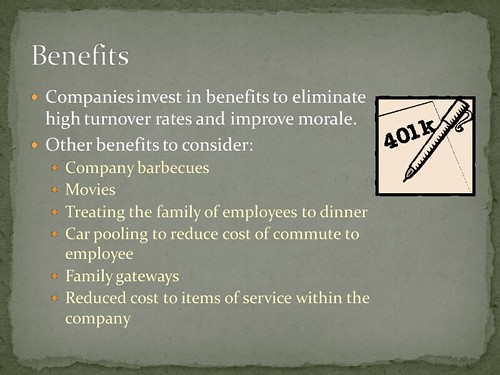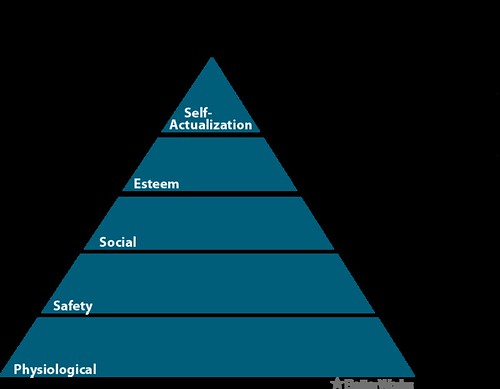What are employee benefits?
Also know as fringe benefits or 'perks,' employee benefits are the 'extras' that the employer pays to an employee, that can make the remuneration package look much more attractive, these can also sometimes be called “benefits in kind”.
Usually taxed, these benefits might include private medical insurance, membership to special clubs, and free or subsidized canteen and transport. In some cases, an employee can 'buy' some of these benefits, in exchange for some of their salary. For example, extra days of holiday can be bought back by sacrificing some salary.

Employee benefits
Benefits can include the following:
- incentive pay schemes, profit sharing schemes, bonus payments, company share schemes;
- housing (paid for by the employer or provided) – for example local authorities sometimes provide subsidized housing to their staff;
- group insurance schemes like private medical insurance, dental, life policies, and disability income protection;
- cheap mortgages (particularly banks and companies in the financial sector);
- pension and retirement benefits – the option to top up company pension schemes;
- health – wellness programs, subsidized or free membership to a gym, medical insurance, support to staff to help with stress and personal problems, physiotherapy, company medical center, stop smoking programs, drug and alcohol abuse support, and
- childcare and education perks, workplace nurseries, subsidized school fees, daycare, sponsorship for further study;
- savings on utility bills like gas, electricity, water, telephone line, broadband and mobile phones;
- holidays paid and unpaid – paid leave can be supplemented by days of unpaid leave;
- sick leave entitlement;
- profit sharing and bonus schemes, share option schemes in the company;
- transport – subsidized or company transport, company car, car parking vouchers, company fuel vouchers, season ticket loans, discounts for holiday travel;
- discounted or free products that the company produces or sells.
Employee benefits are provided by the employee in addition to their salary, making the total remuneration package much more attractive. Benefits are taxable and need to be declared by the employee.
These types of benefits can also provide an element of 'feel-good- about the company the employee works for and can help foster staff loyalty and retention.
When applying for a job consider the employee benefits just as you would salary, try to estimate the benefits worth in pay. Use a Recruitment agency who can advise on employee benefits as part of the negotiations with the employer, such as Financial recruitment specialists, Idex Recruitment of London.

Discretionary benefits
Some benefits are more discretionary and are sometimes referred to colloquially as perks or perqs. These can be used as an incentive or reward to staff members who are more senior or have performed well. Benefits might include private use of company vehicles, hotel stays, free refreshments at work, golf or sport activities during office hours, free use of office stationery, free or subsidized lunch and maybe preferential treatment for when staff can take holidays or work shifts.
Core benefits
These refer to benefits that everyone receives, like pension, life insurance, health insurance and holiday entitlement (which tends to be based on years of service).
Flexible benefits (also referred to as a 'flex scheme')
This allows flexibility in the benefits the employee will receive. They can choose how some of their remuneration gets used on benefits, or they might be allocated a 'benefits budget' to spend. About a third of UK employers operate this sort of scheme. The most popular benefit that employees opt for include pensions and childcare benefits.
There are a number of external companies specialized in the administration of flex packages. Employees can view their benefits on a website and make amendments to their package as their circumstances or preferences change.
Voluntary benefits
Similar to flex plans, voluntary benefits are where the employee can choose to pay for certain benefits, using a salary sacrifice scheme. The employee is opting for a lower salary in exchange for their employer buying for them the perk. This usually includes pension contributions, childcare vouchers and discounts at local retailers and restaurants.
Disadvantages of employee benefits
Though the benefits appear as added extras in some cases, they are usually taxed at the employee's normal tax rate. This can be expensive especially where there is no financial advantage to the benefit. For example, where the employer automatically provides private medical insurance as a benefit, the employee will have to pay income tax on the value of the policy, regardless of whether they want the insurance or have benefited from the cover.
That’s our introduction to employee benefits. Consider the benefits/added extras with any new job very carefully, they could be worth a lot of money.

